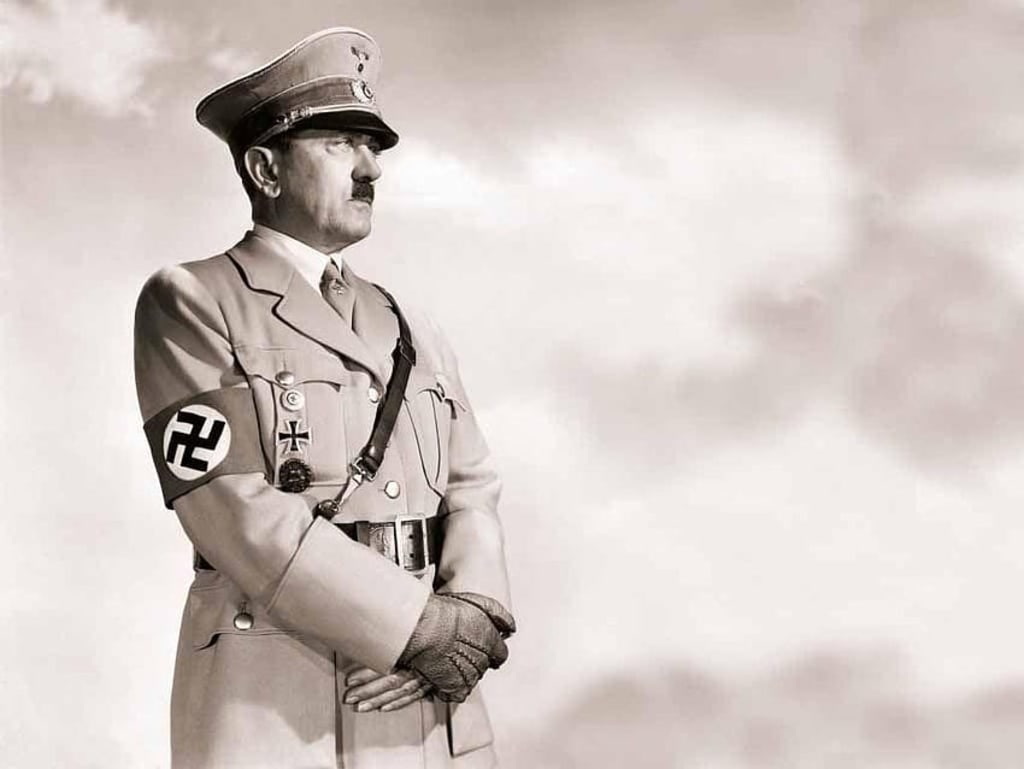Adolf Hitler: The Architect of Nazi Germany and the Holocaust
Real Life Case

Introduction:
Adolf Hitler, one of history's most infamous figures, rose to power as the leader of Nazi Germany and orchestrated the atrocities of the Holocaust. This article explores the life, ideology, and actions of Adolf Hitler, examining the factors that led to his ascent and the catastrophic consequences of his rule.
Early Life and Radicalization:
Adolf Hitler was born on April 20, 1889, in Braunau am Inn, Austria-Hungary. As a young man, Hitler experienced multiple failures and hardships, including the death of his parents, financial struggles, and rejection from art schools. These early setbacks, coupled with his fervent nationalism, anti-Semitic beliefs, and exposure to extremist ideologies, fueled his radicalization and quest for power.
The Rise of Hitler and the Nazi Party:
Following World War I, Germany faced economic and political turmoil. Hitler capitalized on the discontent and found a platform for his extreme ideologies in the National Socialist German Workers' Party (NSDAP), commonly known as the Nazi Party. Through charismatic speeches, propaganda, and political maneuvering, Hitler emerged as the party's leader, exploiting nationalist sentiments, anti-Semitic prejudices, and a promise to restore Germany's former glory.
Consolidation of Power and Totalitarian Rule:
After becoming Chancellor in 1933, Hitler swiftly consolidated his power. He dismantled democratic institutions, suppressed political opposition, and established a totalitarian regime. Hitler's dictatorial rule centralized authority, enabled by the Enabling Act of 1933, and systematically eroded civil liberties, creating an atmosphere of fear and conformity.
The Holocaust and Genocide:
Hitler's most heinous crime was the systematic genocide known as the Holocaust. Driven by his anti-Semitic beliefs, Hitler implemented policies aimed at the persecution, dehumanization, and eventual extermination of Jews and other targeted groups. The Nazi regime constructed concentration camps, where millions were imprisoned, tortured, and murdered in gas chambers, through forced labor, and in other brutal ways. The Holocaust resulted in the deaths of six million Jews and millions of others, forever staining humanity's history.
Expansionism and World War II:
Hitler's aggressive foreign policies, driven by his desire for Lebensraum (living space) and Aryan dominance, led to the outbreak of World War II. Nazi Germany invaded neighboring countries, including Poland, France, and the Soviet Union, plunging the world into a devastating conflict that claimed the lives of over 70 million people. Hitler's militaristic ambitions and brutal tactics, epitomized by the Blitzkrieg strategy and the occupation of conquered territories, brought untold suffering and destruction.
Downfall and Legacy:
As Allied forces closed in on Germany in 1945, Hitler's leadership crumbled. Realizing the inevitability of defeat, he took his own life in his bunker on April 30, 1945. Hitler's legacy remains an enduring symbol of evil and the dangers of unchecked totalitarianism. The Holocaust stands as a stark reminder of the depths of human cruelty and the consequences of prejudice and hate.
Historical Interpretations and Lessons Learned:
The study of Hitler's life and ideology continues to be the subject of intense scholarly examination. Historical interpretations range from analyzing Hitler as a unique individual to situating him within broader socio-political contexts. Lessons learned from Hitler's regime include the importance of safeguarding democratic institutions, promoting tolerance and inclusion, and being vigilant against the spread of extremist ideologies.
Conclusion:
Adolf Hitler's influence on world history cannot be understated. His radical ideology, ruthless pursuit of power, and genocidal actions forever scarred humanity. The horrors of the Holocaust serve as a chilling reminder of the consequences of unchecked hatred and discrimination. By studying Hitler's life and the catastrophic impact of his rule, societies can strive to prevent the rise of similar ideologies, uphold human rights, and build a more just and tolerant world.
About the Creator
Zakria Mirza
My multifaceted abilities as a writer and leader shine brilliantly. With a dazzling literary prowess that captivates and mesmerizes, my words possess an exquisite eloquence, leaving readers spellbound.






Comments (1)
Read More: https://www.informativeblog.co.uk/the-demise-of-adolf-hitler/